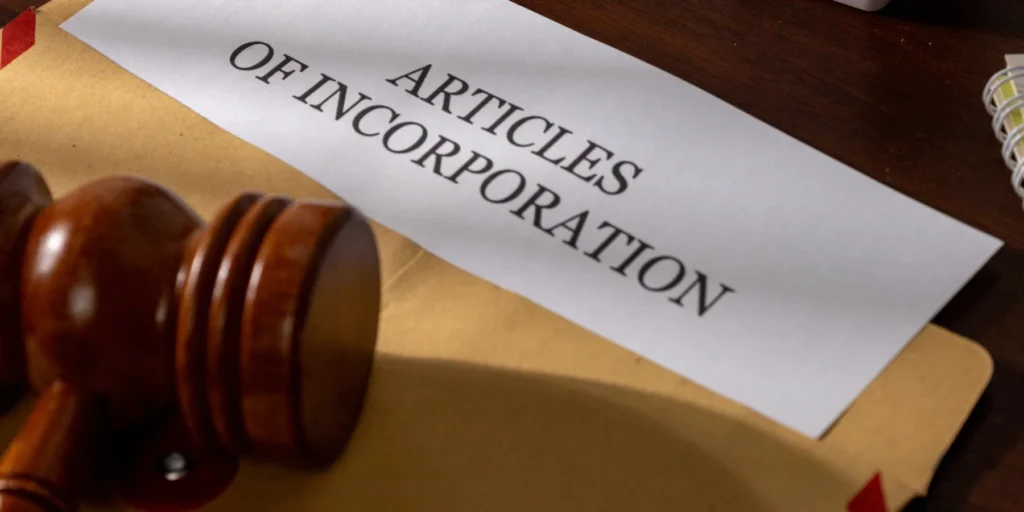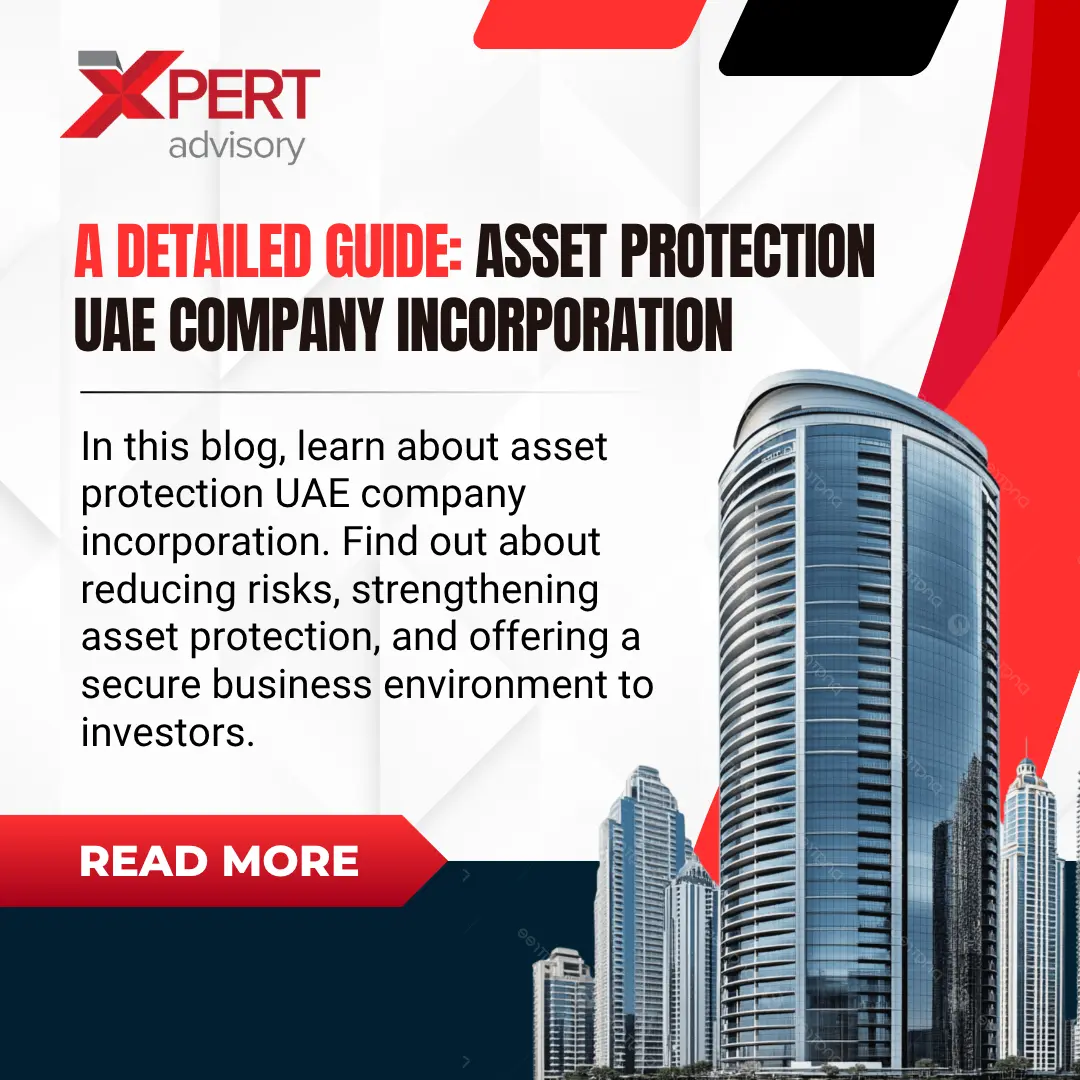Have you ever heard of asset protection in the UAE through company incorporation before? Well, asset protection is a critical consideration for investors and entrepreneurs around the world. The United Arab Emirates has gained immense popularity for offering an environment to safeguard assets through company incorporation.
In this blog, we have discussed everything you need to know about asset protection UAE company incorporation.
Read on to learn more:
Understanding Asset Protection in the UAE Context

The term “asset protection” describes legal tactics by legal entities meant to protect monetary and tangible assets against possible threats, including lawsuits, creditor claims, third parties, unstable political environments, or unanticipated commercial obligations. Asset protection is ingrained in UAE law, providing both locals and foreign investors with the means to efficiently safeguard their capital. Cash, real estate, securities, intellectual property, and investment portfolios are examples of these protected assets.
Asset protection is supported by the UAE’s legal system in a number of ways, such as nominee services, foundations, holding company structures, and offshore company forms. Investors’ trust in asset protection is increased by the jurisdiction’s dedication to protecting property rights and corporate privacy.
Key Advantages of UAE Company Incorporation for Asset Protection
Here are the benefits you must know about asset protection UAE company incorporation –
Political and Economic Stability: The UAE is a safe haven for assets because of its stable political climate, which lowers the chance of expropriation or unfavorable regulations that are prevalent in other jurisdictions. It’s a great way to protect your assets from creditors and legal claims.
Legal Framework: Property rights are strongly protected by UAE laws and regulations. Laws pertaining to offshore corporations, foundations, and trusts offer a variety of choices that are suited to asset protection requirements.
Privacy and Confidentiality: By strengthening the layers of secrecy surrounding asset ownership, services such as nominee directors and shareholders provide the best solution to restrict public traceability.
Taxation Benefits: Incorporating a business offers tax-efficient asset holding structures because several UAE jurisdictions have zero corporate and personal income tax.
Strategic Jurisdictions: Different offshore arrangements and free zones, such as those in Jebel Ali Free Zone (JAFZA), Dubai International Financial Centre (DIFC), and Ras Al Khaimah (RAK), each provide unique advantages for asset protection if you wish to protect it from external sources.
Legal Structures Enabling Asset Protection via UAE Company Incorporation
Offshore Companies: The benefits of offshore company formation are great. These distinct legal companies, which are mostly used for asset holding, international trade, and estate planning, are created in free zones or the UAE offshore structures, such as RAK ICC. They profit from confidentiality clauses and protect assets from external claims and personal obligations.
Holding Companies: By centralizing ownership of various assets, including stocks, patents, and real estate, a holding company established in the United Arab Emirates can preserve important investments by separating operating risks. UAE offers easy and hassle-free holding company setup services.
Foundations: A cross between a business and a trust, UAE Foundations in the competitive global market are being utilized more and more for succession planning, asset protection, and seamless wealth transfer. They keep control and legal ownership distinct, shielding assets from creditors and enabling continuity after the founder’s death.
Nominee Services: Using nominee directors or shareholders offers an extra degree of anonymity because the beneficial owner retains actual control, while legal ownership may be registered under nominees.
Practical Steps for Asset Protection UAE Company Incorporation

Select the Legal Form and Jurisdiction
Depending on the asset structure and business goals, choose the right jurisdiction. For asset protection planning and privacy, think about offshore jurisdictions like RAK ICC or free zones that grant holding company licenses. Depending on the protection requirements, choose between an LLC, an offshore corporation, or a foundation.
Select a Trade Name and Register Your Company
Choose a distinctive business name that complies with UAE naming standards. Prepare the necessary paperwork, including copies of your passport, evidence of residency, your articles of association and memorandum, business strategies, and, if necessary, nominee agreements.
Send Your Application to the Registrar
Submit the application to the appropriate regulatory bodies. This covers paying incorporation fees and submitting corporate documentation. Compliance communication for offshore corporations is usually handled by a registered agent.
Create a Business Bank Account
Create a corporate bank account in the United Arab Emirates to streamline asset management and company operations. Banks might need thorough records about the business and its beneficiaries.
Make Use of Other Asset Protection Resources
Use foundation structures, holding companies, or trusts to manage and separate assets in the UAE in a methodical manner after incorporation. To ensure compliance and enforceability, hire legal assistance to create trust deeds or foundation charters. It gives you the right solution for asset protection.
Maintain Compliance
Maintain legal protection by adhering to regulatory requirements for licensing renewals, financial reporting, and record-keeping.
Common Asset Protection Strategies Using UAE Companies
- Asset Segregation: To isolate liabilities, distinct entities should house investment and operating assets.
- Estate Planning: By using trusts and foundations, wealth can be shielded from creditors and family conflicts while asset succession is planned.
- Maintaining Confidentiality: Using nominee services to conceal ownership in public documents and improve privacy is known as confidentiality. It’s extremely necessary to protect assets in the company.
- Diversification of Countries: To lower risks, keep assets spread across several countries in offshore arrangements or UAE free zones.
- Tax Planning: Businesses can legitimately lower their tax obligations by setting up their operations to take advantage of the UAE’s zero-tax policy.
Some Considerations and Risks
Despite the UAE’s promising asset protection laws, investors should be careful to uphold transparency to steer clear of legal issues. It is essential to follow international compliance standards such as the Common Reporting Standard (CRS) and anti-money laundering laws. Additionally, protecting assets from potential threats is influenced by bilateral treaties and local regulations; therefore, professional legal counsel is recommended to successfully customize measures.
Conclusion
Incorporating a company in the UAE is a powerful route for asset protection, combining legal safeguards, confidentiality, and fiscal advantages. By carefully selecting jurisdictions, legal structures, and utilizing supportive tools like foundations and nominee services, individuals and businesses can protect their wealth against diverse risks and ensure long-term financial security.
For those seeking to safeguard their assets through UAE company incorporation, engaging professional legal and corporate consultancy services is essential to navigate the regulatory landscape and optimize protection strategies effectively. Xpert Advisory can be your partner in streamlining asset protection through a company setup. Contact our experts and find out how we can help you with efficient asset protection.
FAQs
What New Modifications Have Been Made To The DIFC’s 2025 Family Office Regulations?
The DIFC raised asset limits to USD 50 million* and permitted family offices to service several families with permission, replacing the Single Family Office (SFO) Regulations with the more expansive Family Arrangements Regulations in 2023.
Are Licenses Required For Multi-Family Offices In The United Arab Emirates?
It is true that if a multi-family office offers financial services to several families as a business, it needs to be licensed and authorized by the Dubai Financial Services Authority (DFSA).
Do Family Foundations And Trusts Fall Under The UAE Family Business Law?
Indeed, the architecture of the UAE Family Business Law supports succession and governance for family businesses by incorporating privately held corporations, trusts, foundations, and waqfs.


